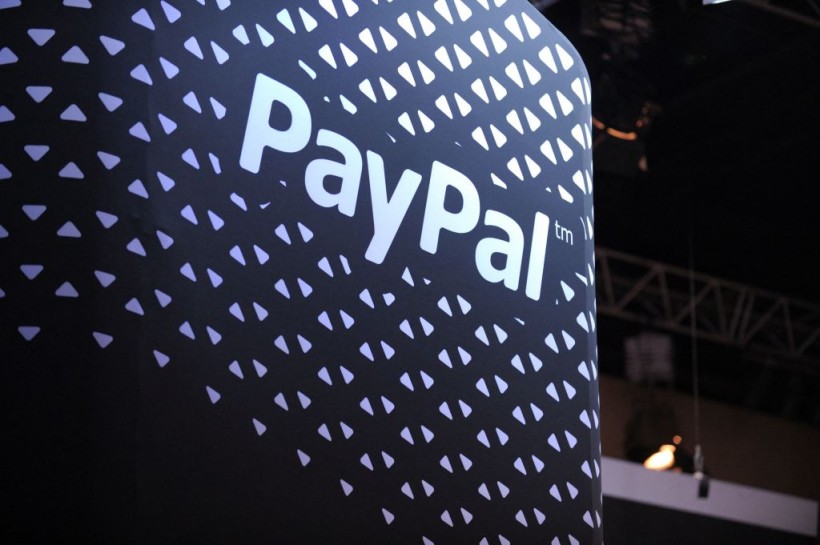The proliferation of artificial intelligence (AI) has been a defining trend in 2023, with organizations across various sectors seeking to incorporate AI into their operations. PayPal, a prominent player in the payments industry, is no exception to this trend.
John Kim, the chief product officer for PayPal, recently discussed the company's utilization of AI to address security challenges and enhance its services.
In an interview with the Associated Press, Kim shed light on how AI is reshaping PayPal's approach to fraud prevention and customer engagement.

The logo of online payment company PayPal is pictured during LeWeb 2013 event in Saint-Denis near Paris on December 10, 2013.
PayPal Fights Fraud With AI
Kim highlighted the evolving nature of security challenges, noting that fraud has become a thriving and increasingly sophisticated enterprise.
He emphasized how fraud attempts have evolved from poorly constructed emails with telltale signs of misspellings to more convincing tactics, such as voice impersonation over the phone.
Now, with the advent of AI, fraudsters can even create realistic identities to further their deceit. Regarding PayPal's integration with AI, Kim revealed the company's plans to introduce three new products closely tied to AI capabilities in the next 120 days.
One of these offerings includes an AI-powered checkout feature designed to streamline the process of selecting the most appropriate address and personal information for transactions.
"For example, we have a checkout feature we are rolling out that uses AI to keep track of all the permutations of your addresses and personal information that you might use and use AI to predict the right one to use with the right merchant," Kim told the AP.
Additionally, Kim discussed AI's role in detecting unusual patterns indicative of fraud attempts. While PayPal currently employs methods to identify such patterns and alert customers, AI is expected to enhance the detection process by anticipating evolving patterns and staying ahead of fraudsters.
However, Kim acknowledged that AI's immense potential has led to skepticism and some challenges. He cited the example of using AI to bolster chatbot capabilities, where the trade-off between cost and effectiveness needs careful consideration.
Kim cited the need to strike a balance between investing in AI technology and the capability of human customer service agents.
Read Also: Congresswoman Raises Alarm Over PayPal's Bold Leap Into Stablecoins
Competition in the Payments Industry
Addressing competition in the payments industry, Kim discussed PayPal's efforts to differentiate itself from rivals like Apple Pay and Google Pay.
He acknowledged that in the early stages, PayPal's uniqueness was centered around achieving scale, but as the industry evolved, the focus shifted to delivering value beyond payment processing.
Kim emphasized the importance of providing added value, such as security, fraud protection, and a seamless payment experience, to establish a competitive edge.
"PayPal really was a one-of-a-kind company for much of the early part of its life. So back then it was really about just getting scale. You didn't really have to sell the value proposition. But now we really have to focus on the value proposition," Kim said as AP reported.
"Customers every day choose how they wish to pay for things, so you need to provide value above just being a method to pay, like security and fraud protection, or letting people now they are fully protected while at the same time making us the easiest way to pay," he added.
Related Article: PayPal Enters Crypto Market, Introduces New US Dollar-Backed Stablecoin










